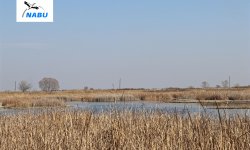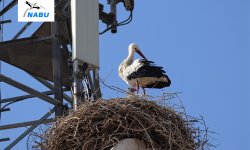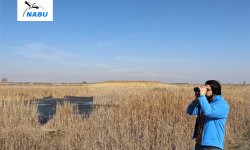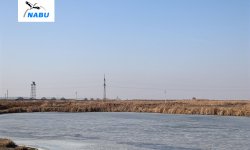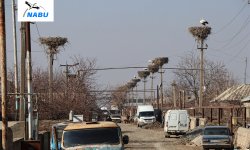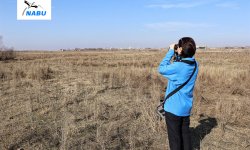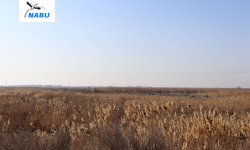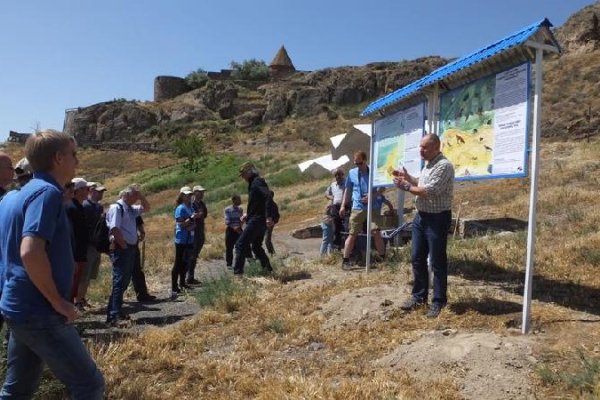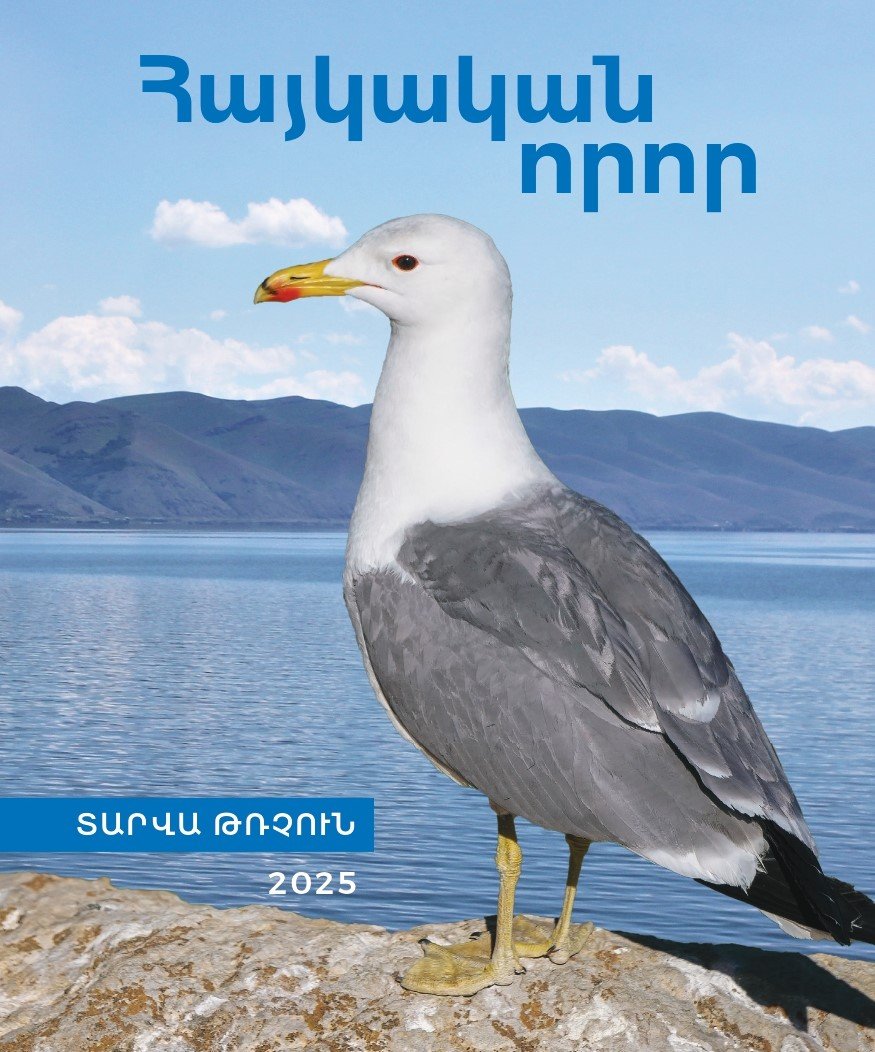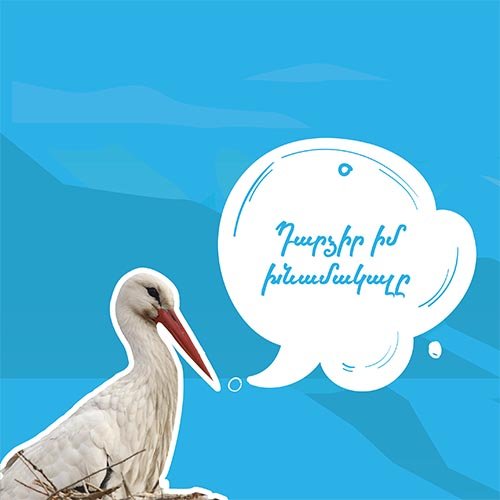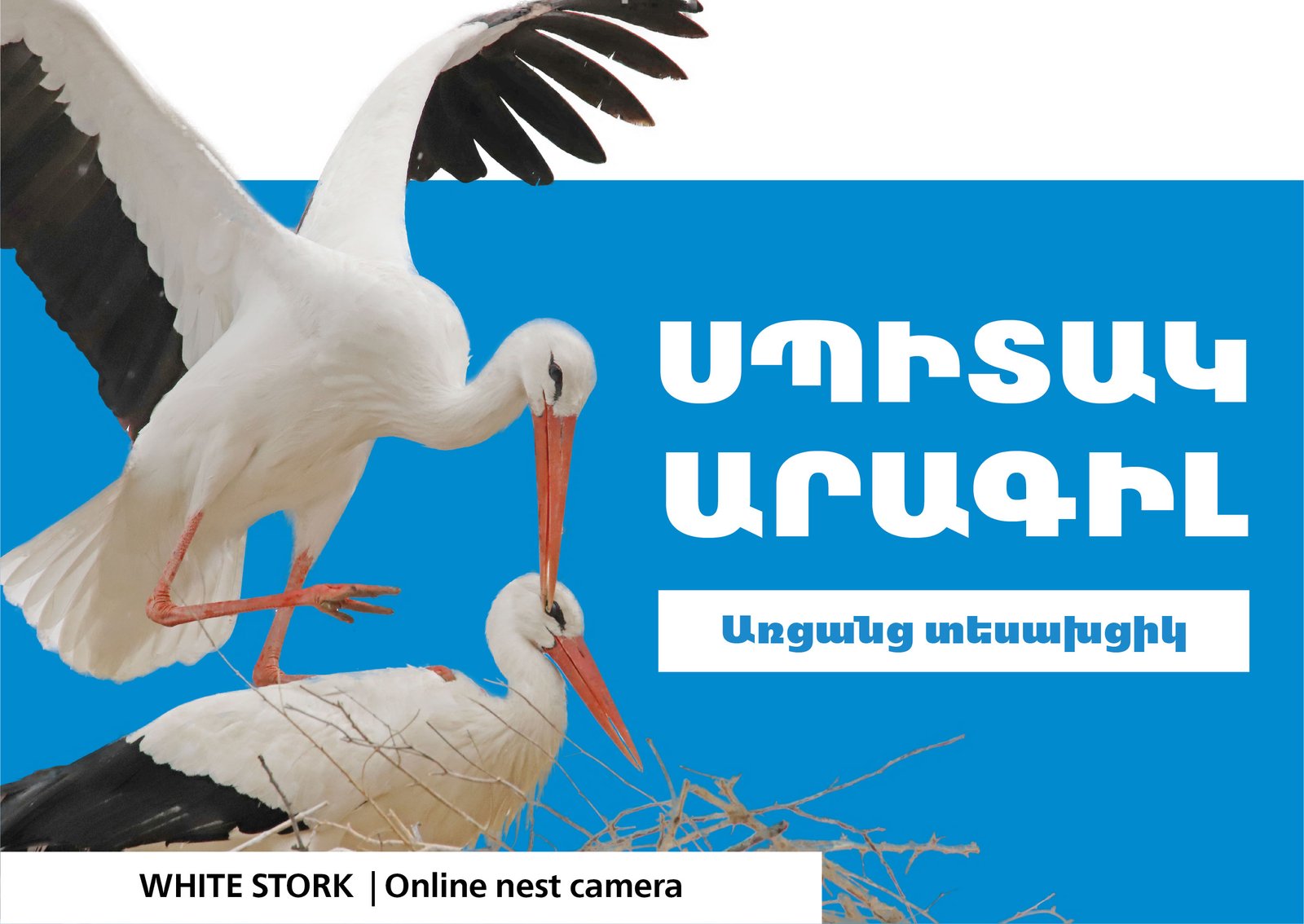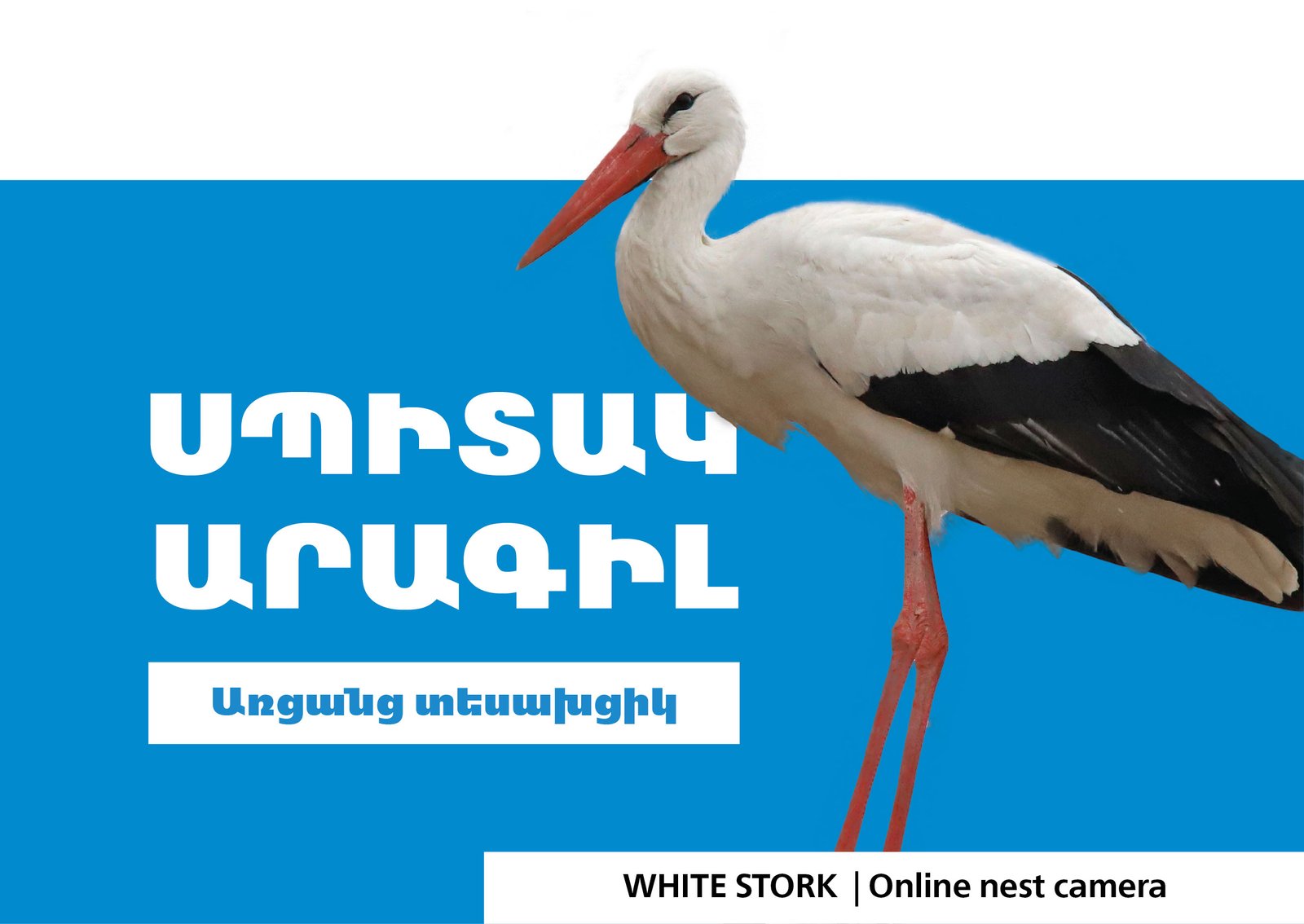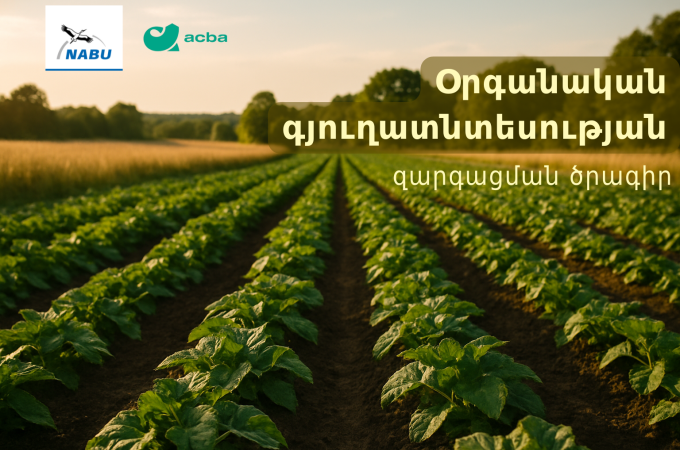The Branch of German Nature Protection Union (NABU) in the Republic of Armenia is launching a new project: Wetland Survey and Conservation in the Araks Valley. The project will be implemented with the support of the Michael Otto Environmental Foundation.
In the new project, NABU promotes the protection of valuable wetlands in the lowlands of the Araks in Armenia. The goal is to work with local communities to find sustainable uses for natural resources while preserving endangered animal habitats.
The Araks Valley is a key link in the Caucasus. Many water areas are in stark contrast to other arid mountain landscapes in Armenia. This is why they are a valuable habitat, especially for birds that live in wetlands. About 140 of the 350 bird species in Armenia are wetland species, which include endangered species. The largest population of White Stork is also in this area. Due to its proximity to its fertile land, the capital, Yerevan, however, the valley is under heavy stress. Intensive agricultural and industrial use leads to habitat loss, many environmental problems, such as water pollution, and land degradation.
The environmental damage to Araks is especially evident in the example of the stork population. The lowlands of the Araks are a real Eldorado for about 560 pairs of storks. From 2018, however, birds are becoming more and more polluted with oil. Sometimes the feathers are so attached to each other that the animals can not fly and perish. Laboratory tests suggest that the contamination is caused by illegally spilled edible oils. Until now, however, the source of the contamination could not be found.
In this project, NABU, together with the local population, finds solutions to use the agricultural areas and waters of the lower Araks region in a gentle, ecologically clean way, and to jointly address environmental issues. The goal of the project is to preserve nature, protect valuable habitats, and promote sustainable resource management through volunteers at the community level. The Araks tributary in the project area near the Metsamor River, which has valuable natural areas, will first be biodiversity analyzed. In the future, during the almost two-year project, local partners will support the establishment of voluntary conservation groups, prepare proposals for water use and land protection in communities, hold roundtables on water management with community representatives, and conduct environmental education. Thus, the project makes a significant contribution to the conservation and sustainable use of valuable settlements in the Araks.
Special thanks to the Michael Otto Environmental Foundation for making the project possible.


